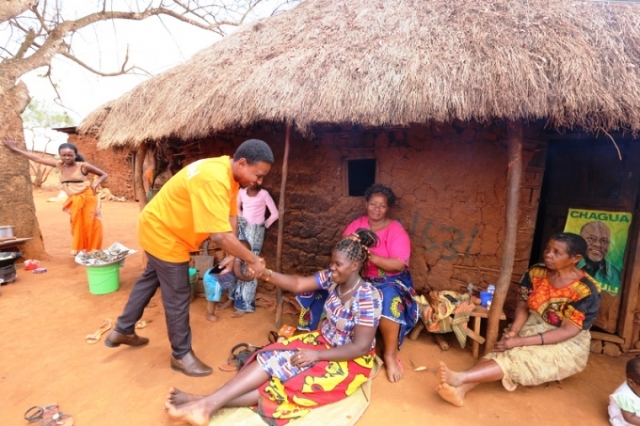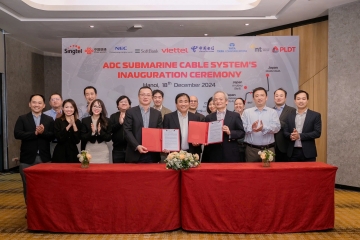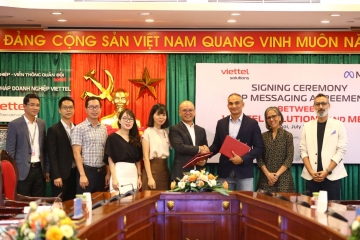Halotel becomes driver of Tanzania's socio-economic development
Principally, President Sang’s visit, with a delegation of 30 businesspeople, is aimed at exploring more avenues of trade and economic co-operation.
The businesspersons are attracted by the good performance within a short period of a Vietnamese state-run company, Viettel. Viettel, a telecoms operator, has launched mobile and internet services in Tanzania under the Halotel brand.
Halotel pumped in 736m US dollars on the investment that went to construction and installation of network infrastructure. The investment, in just one year, saw Viettel’s operations expand to 26 regions in rural and urban Tanzania creating more than 2,000 direct and 20,000 indirect jobs.
The company now boasts of a strong infrastructure comprising 18,000 km of optical cable and more than 2,500 base transceivers.
Roughly, some 1,500 villages have been connected for the first time and the telecom firm also targets to provide free internet connectivity to 450 public schools in the next three years.

Halotel sevices has reached the country’s rural areas where the majourity people live.
On top of that Halotel has also provided optical cable to 150 committees, 150 public hospitals, 150 police stations and 65 post offices within the first half of the year. Halotel holds one of the fastest internets in the country and is compared to none.
“Halotel’s vision is to provide every Tanzanian with a mobile phone and bring communication and information technology to every corner of life.
“We believe that when telecommunications services are accessible to everyone, and become a part of everyday life, they can be a driving force contributing to socio-economic development for the country as a whole,” says Nguyen Thanh Quang, the company’s Director General. Since day one, Halotel announced its vision to provide every Tanzanian with a mobile phone while bringing communication and information technology to every corner of the country.
“We envision fibre optic connection to every community in Tanzania in the near future which will create a platform for mobile network, data, cloud computing,” he explains. Kinondoni District Commissioner, Paul Makonda, says the government appreciates Halotel efforts to provide telecommunications services, particularly in rural areas.
He says the company’s efforts would help bridge the existing gap between the rich and the poor in terms of access to telecommunication services. Mr Nguyen says: “We see Tanzania as the right place for investment because we see the country having greater potential in telecommunications and competitive business environment. “One of the significant potentials we see in Tanzania is telecommunication.
With the transmission network and the effective management, Tanzania has become a competitive market which is very beneficial for the people,” he explains. Halotel is the first company in Tanzania allowed to lay its own fibre optic cable and has placed over 18,000 km of optic fibres, providing services to all 26 regions of the country. Tanzania’s tele-market is one of the most competitive markets in Africa with the country having over 71 per cent mobile phone penetration.
Halotel aims to capitalise on the providing a very wide coverage as quickly as possible and the company claims to cover over 81 per cent of the country’s area. The company was launched in October 2015 and deployed in all regions.
This was Viettel’s fourth investment in Africa after Movitel, Lumitel and Nexttel in Mozambique, Burundi and Cameroon respectively. Viettel started investing in the country in 2011 after the then president Jakaya Kikwete made a state visit to Vietnam.
The goal of the government was to encourage rural mobile connectivity in the country and the government saw fit to increase competition by allowing Viettel to operate in the country.
The entry of Viettel also saw further liberalization of the communication sector, where the government allowed private companies to lay their own optic fibre cables. The company had promised to connect several public institutions around the country with the optic fibre network and connect over 1,500 villages to the telecommunication grid that were previously not served.
The company also tried to partner with state-owned energy company Tanzania Electric Supply Company Limited (TANESCO) to use TANESCO’s power poles to serve as antennas, however due to high costs the plan was abandoned.
The company is in the process of obtaining a licence to operate its mobile money services V-money to help it compete with Tanzania’s well established operators. Viettel Group is a Vietnam based telecommunications group.
It is a state-owned enterprise wholly owned and operated by the Ministry of Defence of Vietnam. The company has a customer base of over 75 million as of 2014 and made over 8.0 billion US dollars in revenue.
dailynews.co.tz




